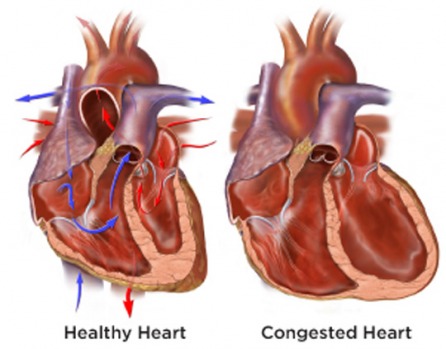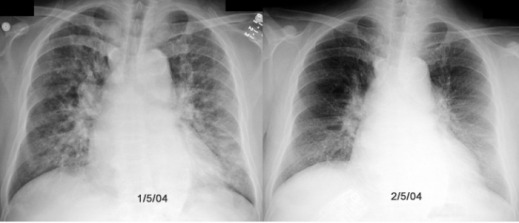- RETIREMENT ANNOUNCEMENT
- HOME PAGE
- "MYCHART" the new patient portal
- BELMONT MEDICAL ASSOCIATES
- MOUNT AUBURN HOSPITAL
- EMERGENCIES
- PRACTICE PHILOSOPHY
- MY RESUME
- TELEMEDICINE CONSULTATION
- CONTACT ME
- LAB RESULTS
- ePRESCRIPTIONS
- eREFERRALS
- RECORD RELEASE
- MEDICAL SCRIBE
- PHYSICIAN ASSISTANT (PA)
- Medicare Annual Wellness Visit
- Case management/Social work
- Quality Care Measures
- Emergency closing notice
- FEEDBACK
- Talking to your doctor
- Choosing..... and losing a doctor
- INDEX A - Z
- ALLERGIC REACTIONS
- Alternative Medicine
- Alzheimer's Disease
- Bladder Problems
- Blood disorders
- Cancer Concerns
- GENETIC TESTING FOR HEREDITARY CANCER
- Chronic Obstructive Pulmonary Disease
- Controversial Concerns
- CPR : Learn and save a life
- CRP : Inflammatory marker
- Diabetes Management
- Dizziness, Vertigo,Tinnitus and Hearing Loss
- EXERCISE
- FEMALE HEALTH
-
GASTROINTESTINAL topics
- Appendicitis
- BRAT diet
- Celiac Disease or Sprue
- Crohn's Disease
- Gastroenterologists for Colon Cancer Screening
- Colonoscopy PREP
- Constipation
- Gluten sensitivity, but not celiac disease
- Heartburn and GERD
- Hemorrhoids and Anal fissure
- Irritable Bowel Syndrome (IBS)
- Inflammatory Bowel Disease
- NASH : Non Alcoholic Steato Hepatitis
- FEET PROBLEMS
- HEART RELATED topics
-
INFECTIOUS DISEASES
- Antibiotic Resistance
- Cat bites >
- Clostridia difficile infection - the "antibiotic associated germ"
- CORONA VIRUS
- Dengue Fever and Chikungunya Fever
- Food borne illnesses
- Shingles Vaccine
- Hepatitis B
- Hepatitis C
- Herpes
- Influenza
- Helicobacter pylori - the "ulcer germ"
- HIV Screening
- Lyme and other tick borne diseases
- Measles
- Meningitis
- MRSA (Staph infection)
- Norovirus
- Sexually Transmitted Diseases
- Shingles (Herpes Zoster)
- Sinusitis
- West Nile Virus
- Whooping Cough (Pertussis)
- Zika virus and pregnancy
- INSURANCE related topics
- KIDNEY STONES
- LEG CRAMPS
- LIBRARY for patients
- LIFE DECISIONS
- MALE HEALTH
- Medication/Drug side effects
- MEDICAL MARIJUANA
- MENTAL HEALTH
- Miscellaneous Articles
-
NUTRITION - EXERCISE - WEIGHT
- Cholesterol : New guidelines for treatment
- Advice to lower your cholesterol
- Cholesterol : Control
- Cholesterol : Raising your HDL Level
- Exercise
- Food : Making Smart Choices
- Food : Making Poor Choices
- Food : Grape Fruit and Drug Interaction
- Food : Vitamins, Minerals and Supplements
- Omega 3 fatty acids
- Vitamin B12 deficiency
- Vitamin D
- Weight Loss
- ORTHOPEDICS
- PAIN
- PATIENTS' RIGHTS
- SKIN
- SLEEP
- SMOKING
- STROKE
- THYROID
- SUBSTANCE ABUSE
- Travel and Vaccination
- TREMOR
- Warfarin Anticoagulation
- OTHER STUFF FOLLOWS
- Fact or Opinion?
- Hippocratic Oath
- FREE ADVICE.......for what its worth!
- LAUGHTER.....is the best medicine
- Physicians Pet Peeves
- PHOTO ALBUM - its not all work!
- Cape Town, South Africa
- Tribute page
- The 100 Club
- Free Wi-Fi
Congestive Heart Failure
For more detailed information on CHF, check out this link
Heart Failure Strikes Blacks More Often and at Younger Ages, Study Finds
By Roni Caryn Rabin : NY Times Article : March 19, 2009
Black adults developed heart failure at a startling rate 20 times higher than did whites, even dying of it decades before the condition typically strikes whites, in a large multi-center study of the causes of heart disease, researchers reported.
Heart failure typically occurs in the elderly and is rare in young adults. Researchers did not expect to see much of it among the 5,115 young blacks and whites, evenly split along racial and gender lines, that they have been following to learn about causes of heart disease. But after 20 years, 27 participants in the study had developed heart failure, all but one of them black.
Most of the heart failure patients were in their 30s and 40s. Three black men and two black women with heart failure died during the study period.
The researchers estimated that heart failure strikes one in 100 blacks under age 50 in the United States.
The study is to be published on Thursday in The New England Journal of Medicine.
“Blacks in our study who were in their 30s and 40s had the same rate of heart failure as whites in their 50s and 60s,” said Dr. Kirsten Bibbins-Domingo, the lead investigator of the heart failure study, which is part of the Coronary Artery Risk Development in Young Adults (CARDIA) study and was sponsored by the National Heart, Lung, and Blood Institute and the Robert Wood Johnson Foundation.
“These are people who are in their prime of their life and should be contributing in all kinds of ways, so this disease has a devastating effect, not just on the individual patient but on the family, the community and society in general,” she added. “Other studies have hinted at this, but we’ve put the numbers on it.”
Those who developed heart failure were more likely than those who did not to have been suffering from high blood pressure, diabetes and chronic kidney disease. They also were more likely to have been obese and to have had low levels of HDL, so-called “good” cholesterol.
Heart failure is a chronic condition that is difficult to treat and often leads to early death. Patients who suffer from it tire easily, suffer from shortness of breath, and are usually unable to work and qualify for disability.
David Mullens, a 57-year-old black man in San Francisco who was not part of the study, was so young when he developed shortness of breath 15 years ago that doctors thought he had asthma. “I was climbing steps and getting short-winded, and I was surprised and thinking, ’Forty-two isn’t too old,’” said Mr. Mullens, who has been on disability for the past 15 years and says past drug use contributed to his condition.
Dr. Eric D. Peterson, a cardiologist at Duke University Medical Center in Durham, N.C., who wrote an editorial on racial disparities in cardiac care published with the report, called the study “remarkably important” and emphasized that the disease is preventable.
“This shows you where having 20 years of uncontrolled blood pressure has effects, on kidney disease — and on the heart,” he said. “It wears it out.”
Several experts said the rate of heart failure seen in the study may be just the “tip of the iceberg,” since researchers only identified patients whose heart failure led to a hospitalization or to death, and not those whose disease was managed on an outpatient basis.
“Could the disproportional rate be even higher?” asked Dr. Gina Wei, medical officer of the CARDIA study at the N.H.L.B.I. “It’s possible, certainly.”
- Patients should be advised to restrict their intake of salt, but other medications can cause fluid retention. These include NSAIDS (ibuprofen, naproxen, indomethacin), glipizides (Avandia and Actos), prednisone amongst many others, so beware......
- Weight should be checked daily and monitored for fluctuation.
- All patients should receive an ACE inhibitor (eg lisinopril) unless they have demonstrated an intolerance (eg cough) or have a contraindication, otherwise an ARB (Benicar, Diovan, Cozaar) can be substituted.
- All patients should receive a beta-blocker (eg metoprolol or carvedilol) unless contraindicated.
- Diuretics (eg furosemide) are given to control fluid retention.
- Spironolactone should be given unless potassium level is elevated and renal function is significantly impaired.
- Digoxin, which used to be the mainstay of therapy, still has a role in certain patients.
Heart Failure Strikes Blacks More Often and at Younger Ages, Study Finds
By Roni Caryn Rabin : NY Times Article : March 19, 2009
Black adults developed heart failure at a startling rate 20 times higher than did whites, even dying of it decades before the condition typically strikes whites, in a large multi-center study of the causes of heart disease, researchers reported.
Heart failure typically occurs in the elderly and is rare in young adults. Researchers did not expect to see much of it among the 5,115 young blacks and whites, evenly split along racial and gender lines, that they have been following to learn about causes of heart disease. But after 20 years, 27 participants in the study had developed heart failure, all but one of them black.
Most of the heart failure patients were in their 30s and 40s. Three black men and two black women with heart failure died during the study period.
The researchers estimated that heart failure strikes one in 100 blacks under age 50 in the United States.
The study is to be published on Thursday in The New England Journal of Medicine.
“Blacks in our study who were in their 30s and 40s had the same rate of heart failure as whites in their 50s and 60s,” said Dr. Kirsten Bibbins-Domingo, the lead investigator of the heart failure study, which is part of the Coronary Artery Risk Development in Young Adults (CARDIA) study and was sponsored by the National Heart, Lung, and Blood Institute and the Robert Wood Johnson Foundation.
“These are people who are in their prime of their life and should be contributing in all kinds of ways, so this disease has a devastating effect, not just on the individual patient but on the family, the community and society in general,” she added. “Other studies have hinted at this, but we’ve put the numbers on it.”
Those who developed heart failure were more likely than those who did not to have been suffering from high blood pressure, diabetes and chronic kidney disease. They also were more likely to have been obese and to have had low levels of HDL, so-called “good” cholesterol.
Heart failure is a chronic condition that is difficult to treat and often leads to early death. Patients who suffer from it tire easily, suffer from shortness of breath, and are usually unable to work and qualify for disability.
David Mullens, a 57-year-old black man in San Francisco who was not part of the study, was so young when he developed shortness of breath 15 years ago that doctors thought he had asthma. “I was climbing steps and getting short-winded, and I was surprised and thinking, ’Forty-two isn’t too old,’” said Mr. Mullens, who has been on disability for the past 15 years and says past drug use contributed to his condition.
Dr. Eric D. Peterson, a cardiologist at Duke University Medical Center in Durham, N.C., who wrote an editorial on racial disparities in cardiac care published with the report, called the study “remarkably important” and emphasized that the disease is preventable.
“This shows you where having 20 years of uncontrolled blood pressure has effects, on kidney disease — and on the heart,” he said. “It wears it out.”
Several experts said the rate of heart failure seen in the study may be just the “tip of the iceberg,” since researchers only identified patients whose heart failure led to a hospitalization or to death, and not those whose disease was managed on an outpatient basis.
“Could the disproportional rate be even higher?” asked Dr. Gina Wei, medical officer of the CARDIA study at the N.H.L.B.I. “It’s possible, certainly.”


